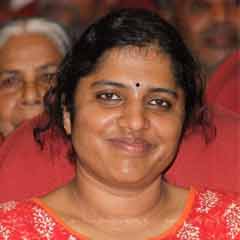Seeking NCC entry, Kerala transwoman approaches High Court; plea to be heard on Friday

Hina Haneef pleads the court to declare specific section in the NCC Act that limits entry to only male and female cadets unconstitutional.
Hina Haneef pleads the court to declare specific section in the NCC Act that limits entry to only male and female cadets unconstitutional.
Hina Haneef pleads the court to declare specific section in the NCC Act that limits entry to only male and female cadets unconstitutional.
Hina Haneef has been an active NCC (National Cadet Corps) cadet during school days. Years later, after she came out to her family and friends, the transwoman secured admission to BA History at the University College in Thiruvananthapuram. But to her dismay, she was told that the NCC had no provision to enroll transpersons and that she couldn’t join the unit in her college. Irked, she approached the Kerala High Court, seeking to declare the specific section of the NCC Act, 1948, that limits inclusion of only male and female cadets to the Corps as unconstitutional. She also pleaded the Court to ensure transpersons inclusion in the NCC.
Her plea is due for a second hearing this Friday.
Hina wants a directive to the NCC to include transmen in the male category and transwomen in the female category.
“Earlier, a transperson from Malappuram had tried to join NCC but the Act stood in the way. I decided not to bow down and fight for the right. I wrote to the Minister of Health and Social Welfare K K Shailaja first and then to the NCC Directorate in Vazhuthacaud. Though the petitions were forwarded to higher-ups and the officials offered all support to me, they were helpless as the Union Government has to take decisions pertaining to NCC,” she said.
So Hina had no option but to take up the issue legally. “With the help of lawyers Saneesh and Sudheesh, I moved the High Court, pointing out this discrimination by the Central government against transgender people in educational institutions. Transpersons are acknowledged and granted rights under the Constitution like everyone else, then why this discrimination?” asked the Malappuram native who was awarded an NCC ‘A’ certificate from her school.
‘Welcome in paramilitary, but not in NCC’
At a time when transpersons have made it to the paramilitary forces of the country, this unfairness needs to be addressed, she said. “The idea behind NCC is to develop leadership skills among youngsters and provide them quality training and make them disciplined and unified. Why keep us away from the training?”
Kerala being the first state in country to have formulated a Transgender Policy in 2015, Hina is glad about the milestones the state has achieved so far. “Kerala has the highest number of transgender students in the country. The state has been providing free-of-cost sex reassignment surgeries. Transpersons have stopped migrating to other states. The policy and attempts to end discrimination have increased acceptance for transpeople in colleges and workplaces. Still there’s a long way to go,” she said.
She said transperson should be provided reservation in government jobs. “We have reservation in graduate and undergraduate courses, but many transgender students have dropped out of colleges due to personal and financial reasons. At least two per cent reservation in government jobs could bring about a sea change in the ground situation. It will help transpersons lead a life of dignity by giving up menial jobs, begging and sex work,” she said.
Now, Hina is keeping her fingers crossed. “Someone has to be the voice and let it be heard. As sexual minorities, we have to keep fighting to earn our rights. Our efforts might bear fruits only later, but sooner or later, acceptance is bound to happen in society and within the family. I am sure that a decade later, things would be very different,” she said.
(Vandana Mohandas is an independent journalist based in Kochi)

